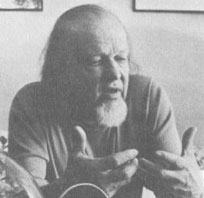 Existentialism, according to Francis, is the culprit behind this cold and unyielding cynicism that capitalized on the pretensions of modern theologians- who avoided staring at the problem in its eye, comments William Carey while reviewing Francis Schaeffer’s books.
Existentialism, according to Francis, is the culprit behind this cold and unyielding cynicism that capitalized on the pretensions of modern theologians- who avoided staring at the problem in its eye, comments William Carey while reviewing Francis Schaeffer’s books.
The first of the five volumes of Francis Schaeffer's works includes the most applauded of his writings. It is a compilation of four books, namely, 'God who is there', 'Escape from reason', 'He is there and he is not silent', and 'Back to Freedom and Dignity'.
In this mind gripping collection of books, Francis takes us through a journey into the history, to the events that have defined the journey and arrival of mankind into the modern (and desperate) age. The aim of these works seem to make the correct diagnosis and prescribe a remedy for this strange yet hopelessly real 'despair' that daunts the modern man, not to exclude the Christian believer.
He points out with compelling simplicity (one can't but appreciate the restraint that has been practiced against the temptation of being wordy), and clarity about the way men have arrived at the conclusion that True truth can be known only metaphysically (by experiencing it) and need not be (and cannot be) known on rational grounds i.e. they cannot be proved through the 'tests of truth' that are used as means to verify the truth normally in any other world view.
The first book points the finger at Hegel, the man who destroyed the concept of knowing the truth through the system of 'Thesis and Antithesis'- the way through which all the philosophical deductions were made until then. This Antithesis works somewhat like this- "if 'A' is true than all that is 'Non-A' is false". Hegel was sick with the way mankind was unable to find a solution to its problems with this way and has come up with a new concept of knowing truth through 'Synthesis'.
It tells you not tobother much about what is right and what is not, but learn to appreciate the good things from both 'A' and 'Non-A'. This relative approach towards truth has marked the entry of mankind into what Francis calls as a 'Line of Despair', where all honest truth-seekers began to crumble under the falsity of demands of this relativistic 'Synthesis'. In second and third books of this trilogy, Francis continues to unearth the lines that connected the changes that affected Christian thought, Philosophy and Art which included painting, music and movies.
He traces the beginnings of present trend of glorifying agnostic cynicism that has shown itself in, starting from the works of Thomas Aquinas, followed by artists like Vincent Van Gogh and Pablo Picasso with all their abstract ways of depicting facts.
Existentialism, according to Francis, is the culprit behind this cold and unyielding cynicism that capitalized on the pretensions of modern theologians- who avoided staring at the problem in its eye. Rather they have made fancy deductions that have made the Christian faith another feel-good philosophy-based purely on romantic and 'high' feelings, which made it vulnerable to the attacks of more serious and honest thinkers.
One will understand that early Christians never had any problem with reasoning out their faith, and therefore have never felt that one has to step out of his intellect to accommodate faith, and that Science was possible only because it was born out of people who believed that there is a reasonable creator 'who is there' and that his reason connects all his creation, which can be known by using reason and can be communicated by propositional form of communication to people 'who are there', again in the way God has chosen to communicate.
East could never produce such science because it never had a clue that anything or anybody is basically 'there' to know or to be known or communicated.
{moscomment}



